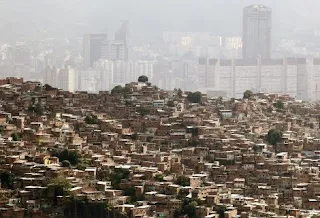
and José Sant Roz
Caracas
Columbia (Canada). Lebowitz is the author of outstanding books such as "Socialism does not fall from the sky" (much discussed by President Chávez) and "Build it now: Socialism for the 21st Century". I do not hesitate to declare that Lebowitz is an essential light for us in the Bolivarian revolutionary process. Many problems and many concerns were raised in this interview and he responded to them with simple and accurate clarity. Here I present the first part.
SR: We are concerned with the issue of socialism, but there is sometimes a big difference between what is said and what is done in reality.
ML: This is always going to be true. But the first thing we need to do is to create a vision and for this you need the words. There is an old saying that if you do not know where you want to go, any road will take you there, but no, this is not true; rather, if you do not know where you want to go, no road will take you there. And I think that in Venezuela, with the development of the concept of socialism for the 21st century, we know where we want to go.
This vision is clear and it is a vision that is very different from the experiences of socialism in the twentieth century. That is the first step, a very important step, but now we come to the crucial step:
Understanding how this should be done in practice and how can we establish the institutions that allow people to develop. This is being developed now through the communal councils, workers councils, where people participate in making the decisions that affect them.
The problem, though, is that it's not so easy to do that when there are people who want to do everything for others from above.
They say: we are going to create communal councils everywhere, communes everywhere.
And if the people are not ready to develop their communal councils, they say we'll do them ourselves.
Part of the problem is impatience that does not respect the process and the time that must elapse for people to develop themselves.
Furthermore, there are people who are totally opposed to the idea that the people themselves make their own decisions.
The clearest case can be seen with worker's participation.
There are people who believe that workers are unable, that they are not prepared, and that they don't have the knowledge to make decisions affecting their work process.
The result of this attitude that workers are not capable is reflected in the fact that electricity outages are occurring throughout all of Venezuela.
The workers know what the problems are, but they have not been allowed to implement the solutions, to take the necessary steps to prevent such outages. Vision is important but it is not enough; it is not sufficient--- struggle is always necessary.
ST: Simón Bolívar founded Gran Colombia on 17 December 1819, and died on 17 December 1830, and then this tremendous work he created with his great strength and will disappeared. What if Chavez were to disappear today?
hope that there is an alternative to neoliberalism. If such a thing occurred at this time it would be more than a loss, it would be a tragedy, because I think the process is not sufficiently developed that it could continue with leadership from below.
Perhaps by 2020 there would be a possibility that the process could continue without Chavez. But right now NO.
for the remainder of this interview go to Znet






